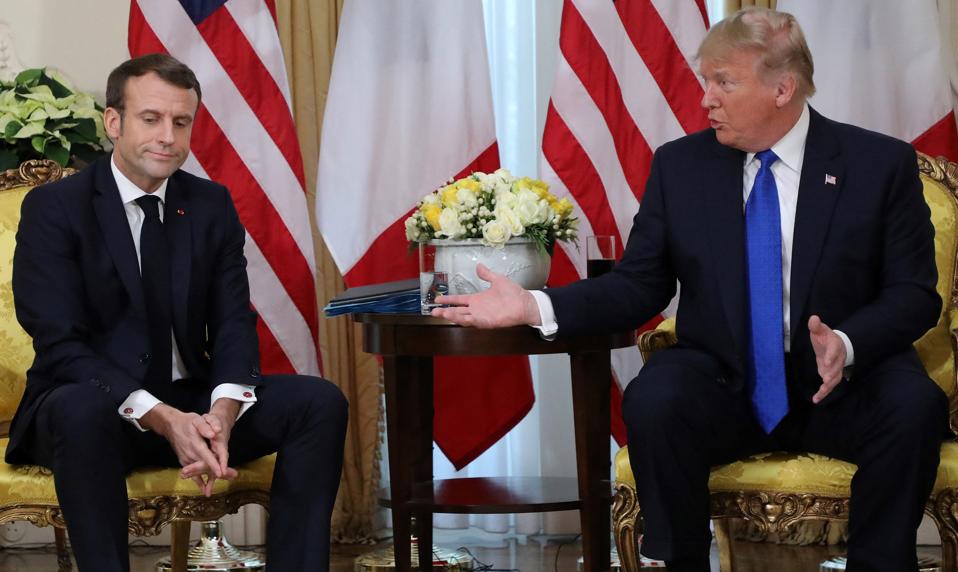I had thought that early March could be crucial from a political economic point of view. On March 4th Donald Trump goes on trial for trying to overturn the results of the 2020 presidential election, and on the 5th the republican party holds its primary elections for the 2024 presidency. The scene would be set for Trump the martyr to march to power.
It seems that the sense of drama is now largely redundant, Trump is well ahead of his nearest rival Nikki Haley, and he has started to control the policy agenda on the republican side. His very obvious weak point is that beyond the most steadfast ‘right wing’ republicans, he seems to have few votes to garner. This may ensure that some donors help Haley to stay in the race longer than many think.
Yet, a second Trump presidency is now a high probability, and in the US, activists, lawyers and the policy community are preparing for this scenario and the likely cleaving of public life in the US (it can get worse than it is). Beyond the US, the knee-jerk assumption is that Europe is unprepared for a second Trump presidency, and that Europe will ‘fold’ in a world where the leader of the ‘free’ world is an aspiring dictator. I am not sure that this assumption is a good one.
Much of the debate around the impact of a second Trump presidency on Europe, centres around defence, the assumption being that the US would pull out of NATO, leaving Europe at the mercy of Russia. Indeed, in recent days a chorus of European policy makers have sounded off on this.
For example, last week the defence ministers of the UK and Germany, Norwegian and Swedish generals, as well as the head of NATO’s military committee, have made pointed warnings of a war between NATO and Russia. There have also been calls for an EU army (‘European pillar of defence’) and for the EU to have its own nuclear deterrent (the only independent European nuclear capability is that of France), and a public musing by a British general on the virtues of conscription.
If Europe is serious about preparing the political and security ground for a Trump II world in which Russia becomes more belligerent (I am not sure), then it can do a number of things, which in themselves become tests of intent.
First, to repeat a point I have made in this note many times, it needs to make member states like Slovakia and especially Hungary (as well as prospective member Serbia) choose sides. Trump is the only political figure in the western world who lauds Viktor Orban (Putin simply controls him), and Orban in return pushes the case for Trump’s re-election. Orban’s corruption and Russo-philia are becoming institutionalised in Hungary.
Matters might come to a head at an EU leaders summit late next week, where the aim is to sign-off a funding package for Ukraine. Hungary has obstructed this and there is now a sizable group in the European parliament and a smaller group amongst European leaders in favour of using Article 7 to deprive Hungary of its voting rights. Beyond Hungary, there is much the EU can do to prepare for a more hostile approach from Russia – aggressively bolster support for Belarus’ opposition, credible trade and financial sanctions against Russia, aggressive sanctions against banks in and on the old periphery of the EU (i.e. UK and Switzerland) who hold the assets of Russian individuals, and very severe controls on the movement of Russians into and in the EU.
Before I get too carried away with preparations for war, let’s return to the impact of a second Trump presidency for Europe. My view is that beyond the grotesqueness of Trump as a character, the real concern is that his second term in office would be marked by the abandonment of the rule of law and the ethos of democracy by a majority of Americans, to a degree never seen in America’s long history as a democracy and not even fully anticipated in the Federalist Papers.
If this is the view that Americans and the rest of the world draw, then it will have significant implications for the role of American companies in the world economy, the perceived safety of US assets and the role America as both a superpower and a benign ‘godfather’ to world institutions. In this scenario, where there is less respect, confidence in and fear of America, Europe has an obligation and an opportunity to bolster the international order.
Indeed, one could imagine that the role of Europe in the world (as the liberal, democratic and cultural pole) could become clearer – should Europe’s leaders rise to the challenge in framing this, and in investing in it. Here, one opportunity that has gone begging is capital markets union – perhaps there are no votes in such a project for European politicians – but Europe has failed to follow through on one of the implications of the euro-zone crisis. As a financial system it needs more ‘safe assets’ and risk capital. If Europe had deeper, more joined up capital markets it would be in a much stronger place geopolitically, and in terms of funding its ‘strategic autonomy’.
As a final point (I suspect I will be returning to this topic) Europe’s politicians, and I would argue its voters, need to examine the reasons behind Trump’s persistent popularity and ensure that Europe does not make the same mistake (particularly bearing in mind the current controversy over the AfD in Germany, where senior party members hosted an offsite led by a small, Austrian fascist that touched on topics such as mass deportation). In particular, the sense that politics is disconnected from people and run by an ‘elite’, the high cost of living, the poisoning of political systems by social media and the need for greater education specifically around democracy, are just some of the things that spring to mind.

